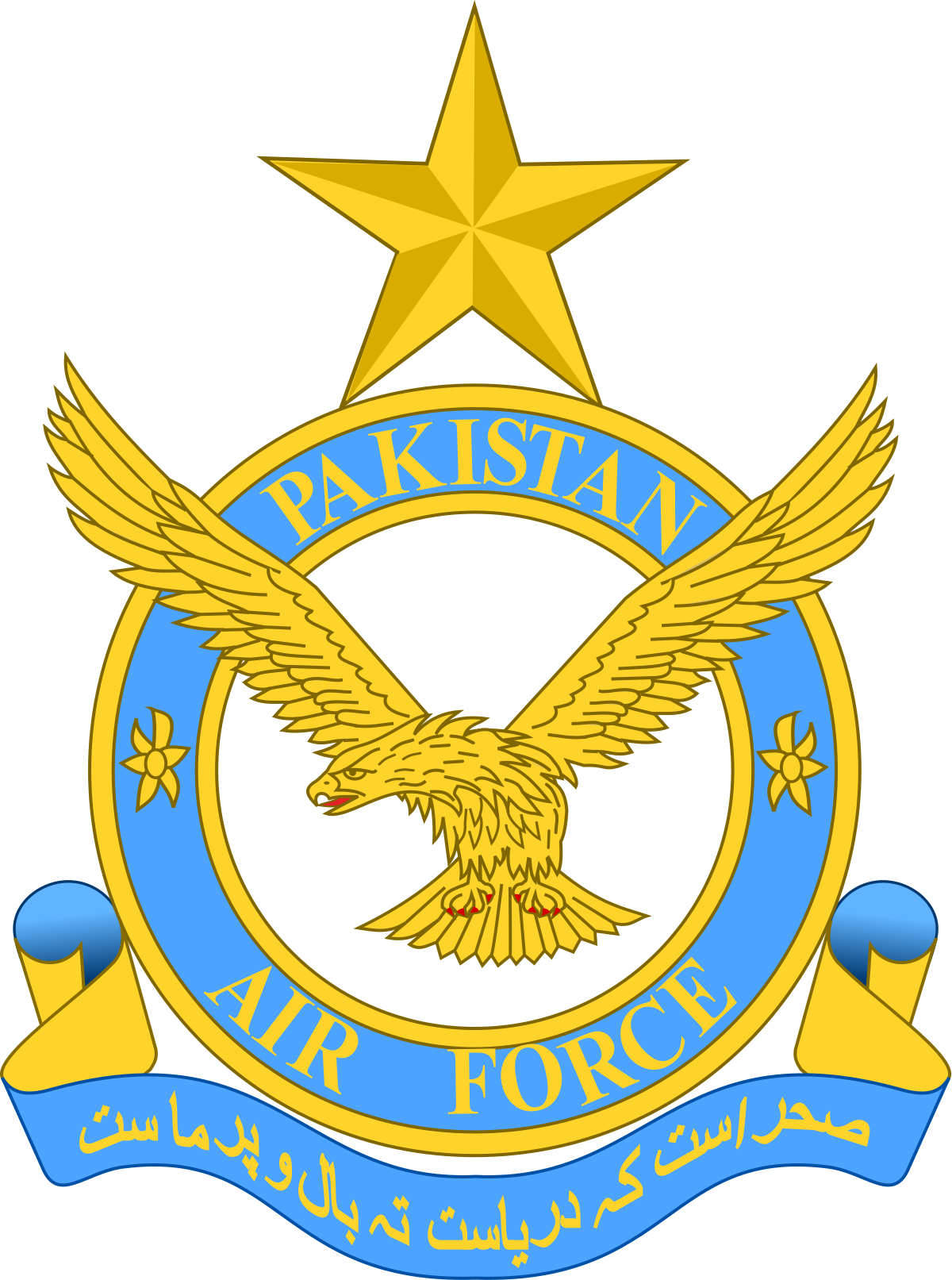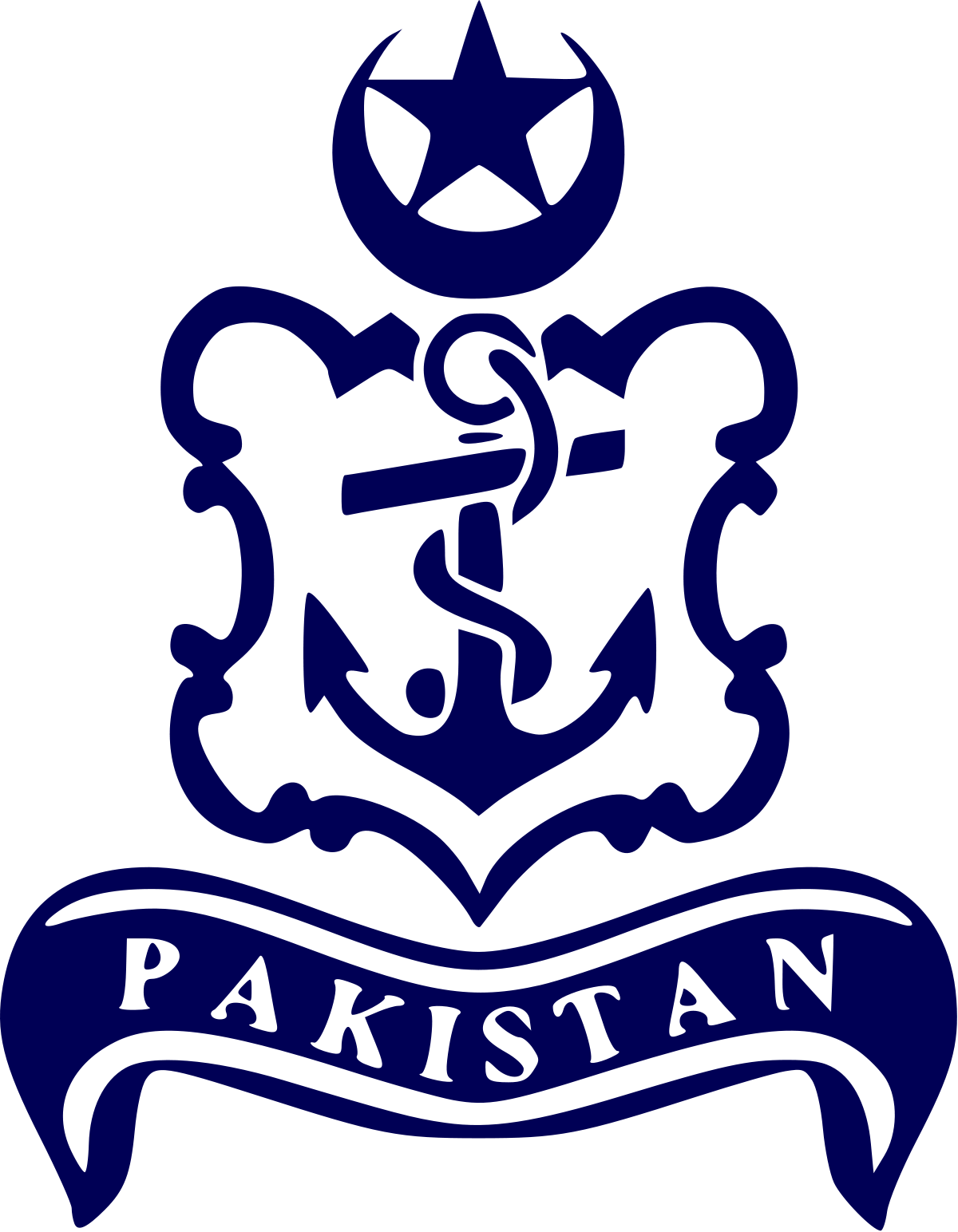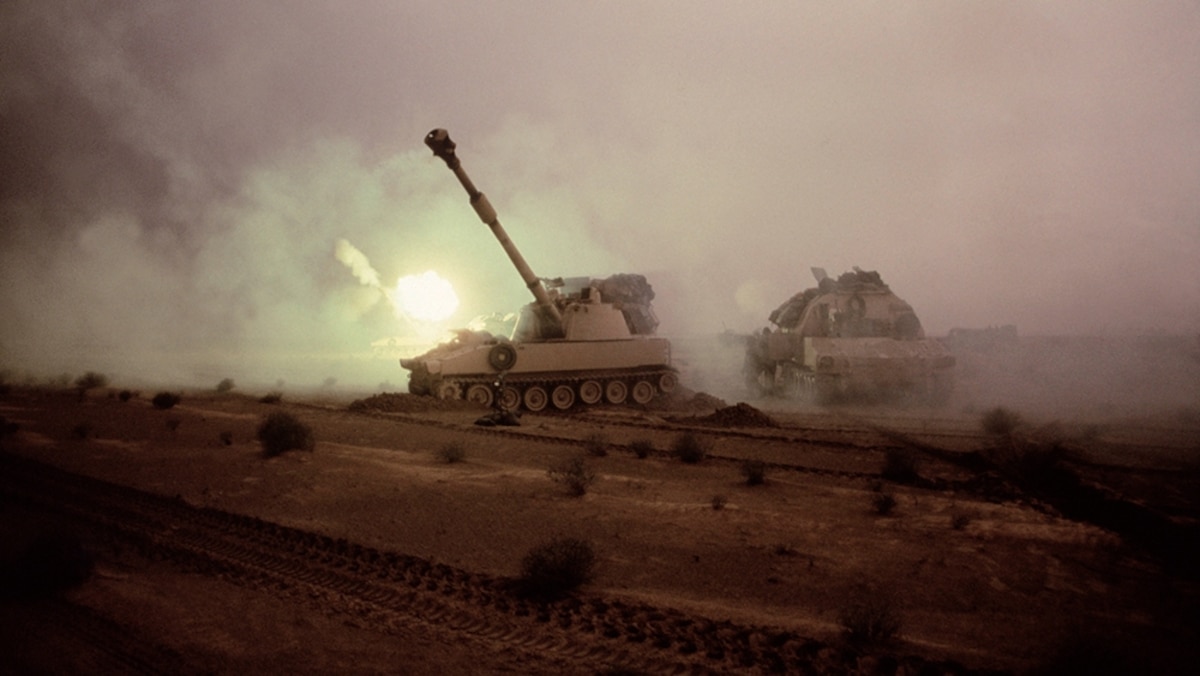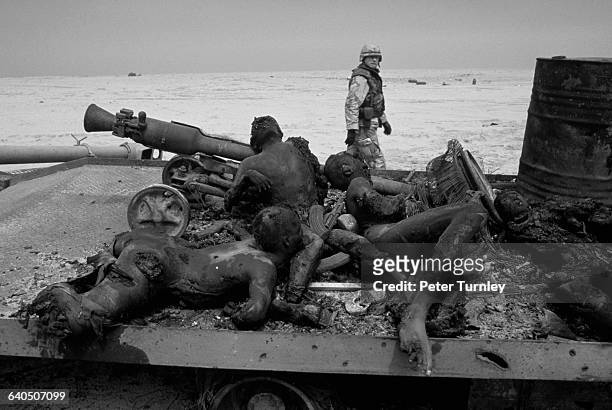Baburfromsarmarkand
FULL MEMBER

- Joined
- May 12, 2019
- Messages
- 890
- Reaction score
- -2
- Country
- Location
Na, there is no honor in fake accomplishments.Aaa the clear loser mentality.
Follow along with the video below to see how to install our site as a web app on your home screen.
Note: This feature may not be available in some browsers.

Na, there is no honor in fake accomplishments.Aaa the clear loser mentality.
This is a sad comparison. What Iraq could have been...Bro,
Iraqi Army was the largest and best-equipped in the pan-Islamic bloc as in 1990.
Iraqi Air Force was the largest and best-equipped in the pan-Islamic bloc as in 1990.
Iraqi Navy was small as in 1990*.
*Iraqi coast is very small so developing a large navy was not a priority.
How Pakistan compared to Iraq in terms of military might as in 1990? I have put together data from different sources below.
1. Pakistan Army was smaller and much less equipped in comparison to Iraqi Army as in 1990.
*Pakistan Army had no SAM systems in its arsenal. Pakistan Air Force was operating SAM systems instead.
Army Pakistan Army Iraqi Army Troops Total = 450000 Total = 640000
Regular Troops = 400000
Republican Guards = 240000MBT Total = 1600
Chinese Type 59 = 900
American M-47/48 Patton = 400
Others = 300Total = 5500+
Soviet T-72 = 1000
Soviet T-62 = 1500
Chinese Type 59 = 1500
Soviet T-54/55/M-77 = 1500
British Chieftain MK variants = 30APC / IFV Total = 645 Total = 7500
IFV = 1500 (Soviet BMP-1/-2)
APC = 6000 (Soviet BTR-50/-60/-152; Polish OT-62/-64; Soviet MT-LB; Chinese Type 63; American M-113A1/A2; French Panhard M-3; Brazilian EE-11 Urutu)Artillery Pieces Total = 1100+
Towed = 1100+
Self-propelled = ? (M109A2; M110)Total = 3700+
Towed = 3000
Self-propelled = 500
MLRS =200Air Defense* AA guns = ? AA guns = 4000 (From 23 mm to 130 mm)
SAM systems = 600+ (Soviet SA-2 = 60; Soviet SA-3 = 140; Soviet SA-6/-7/-8/-9/-14 = 300+; French Roland = 100)Ballistic Missiles** Total = 86 TEL
FROG-7 class TEL = 50
Scud-B class TEL = 36Helicopters Total = 71
Attack type = 20 (American Bell AH-1S Cobra = 20)
Transport type*** = 51 (Soviet Mi-8/HIP = 16; French SA-330 = 35)Total = 518
Attack type = 159 (German Bo-105 = 56; Soviet Mi-24= 40; French SA-316 = 30; French SA-321 = 13; French SA-342 = 20)
Transport type = 364 (Soviet Mi-6 = 15; American Bell 214 ST = 40; Soviet Mi-8/-17 = 140; Italian Agusta AS-61 = 5; French SA-330 = 20; Soviet Mi-4 = 20; Italian Agusta A-109 = 3; American Bell AB-212 = 5; American Hughes 300C = 30; American Hughes 500D = 30; American Hughes 530F = 26; French SA-342 = 30)
**Pakistan Army had no ballistic missiles in its arsenal.
***Pakistan Army Aviation had the capacity to airlift an infantry brigade from one location to another within the country.
Iraqi Army had an integrated Air Defense system in place which set it apart from any other across the pan-Islamic bloc in 1990. This system is credited for downing dozens of aircraft of the US-led coalition in 1991. This was the case in spite of the fact that US-led coalition was using heliborne special forces, cruise missiles, and stealthy aircraft to degrade Iraq's Air Defense system in a remarkable combination of military technologies and tactics that had no peer around the world at the time.
Iraqi Army also had a Ballistic Missile force which was used to strike at desired targets in Saudi Arabia and Israel in 1991. Operational and dispersal competence of this force in war-time conditions surprised many observers. Even though the Iraqi strike at Israel was a tactical masterstroke aimed to disrupt operational cohesion of the US-led coalition in 1991, this gambit did not pay off because US was able to convince Israel to stay out from the war in view of prevalent Arab sentiment of the time.
2. Pakistan Air Force was smaller and less equipped in comparison to Iraqi Air Force as in 1990.
*F-7P and J-7 are Chinese MiG-21 derivatives.
Air Force Pakistan Air Force Iraqi Air Force Manpower ? 40000 Fighters F-16 A/B Block 15 = 40
F-7P** = 60
F-6* = 150***MiG-29 = 30
Mirage F-1EQ = 30
MiG-25 = 25
J-7** = 40Fighters / Ground Attack Mirage III/V* = 100
A-5III/C = 50Mirage F-1EQ5/EQ-5 200 = 64
MiG-23 = 90
J-6* = 30
Su-25 = 60
Su-24 = 16
Su-20 = 70
Su-7 = 30Recon MiG-25 = 7
MiG-21 = 5Electronic Warfare Falcon DA-20 = 3 Bombers**** Tu-22 = 8
Tu-16 = 4
H-6D = 4Transport C-130 = 12 An-26 = 2
An-24 = 6
An-12 = 10
An-2 = 10
IL-76 = 19Air Defense Total = ?
AA guns = ?
SAM systems = 16+ (French Crotale; HQ-2B; PL-9)
**F-6 and J-6 are Chinese MiG-19 derivatives.
***This total count is valid up to 1989. PAF was looking forward to replace F-6 with F-7P afterwards. PAF counted on these aircraft to substitute for lack of SAM systems for Air Defense.
****PAF retired its fleet of B-57 bombers in 1985.
F-16 was state-of-the-art in the 1980s and made it possible for PAF to counter threats emanating from Afghanistan as well as give India second thoughts. Indian reluctance to help USSR in Afghanistan worked to our advantage on the other hand. PERCEPTION can be impactful.
PAF could hold its own against Iraqi Air Force in an all out exchange but WHERE was this hypothetical clash expected to occur? PAF could NOT be dispatched to engage Iraqi Air Force in its home turf. PAF had no AWACS and Aerial Refueling capability at the time.
3. Pakistan Navy was larger and better equipped in comparison to Iraqi Navy as in 1990.
*WWII vintage
Navy Pakistan Navy Iraqi Navy Manpower 13000 5000 Cruiser British County-class* = 1 Destroyer American Gearing-class = 6 Frigate Italian Hittin-class = 4
Khaldoum Training = 1Corvette British Town-class = 1
Chinese Hainan-class = 4Italian-Assad class with helipad = 2
Italian-Assad class = 2Boats Chinese Type 062 gunboat = 12
Chinese Type 025 torpedo boat = 4Soviet Osa-class missile boat = 8
Soviet P-6 torpedo boat = 6
Others = 20MCMV Soviet T-43 = 2
Others = 6Amphibious Transport Iraqi al-zahraa landing ship = 3
Soviet Polnocny landing ship = 3Submarine French Agosta-class** = 2
French Daphne-class = 4
Italian SX-404 midget = 4Aircraft French Breguet Br.1150 Atlantic maritime patrol = 3
British Sea King ASW helicopter = 6American Bell AB-212 ASW helicopter = 6
**Agosta-70A variant
The Gearing-class destroyers could be dispatched to the Persian Gulf to engage Iraqi Navy but they were lacking in air defense weaponry. Iraqi Air Force could attack and sink ships as the USS Stark incident showed in 1987.
Agosta-class and Daphne-class submarines could also be dispatched to the Persian Gulf to counter Iraqi Navy but the Persian Gulf is a shallow water environment and the submarines would be vulnerable in this region. These assets were best used in the Indian ocean.
Pakistan Navy was better suited for coastal defense in large part.
REFERENCES
REPORTS

Global Arms Exports to Iraq, 1960-1990
This Note provides information about the supply of weapons to Iraq since the 1960s, including a rough assessment of the level of technological sophistication inherent in those systems.www.rand.org
---
ACADEMIC
Chatterjee, D (2012). Taking Stock of Pakistan’s Artillery. The Centre for Land Warfare Studies (CLAWS), 124-134.
Elkin, J. F., & Ritezel, W. A. (1986). The Indo-Pakistani Military Balance. Asian Survey, 26(5), 518-538.
Rikhye, R. (1989). Assessing Pakistan's Military Expansion since 1971. Economic and Political Weekly, 395-398.
---
WEBSITES
Army - Iraq Special Weapons
nuke.fas.org
Chengdu F-7P
babriet.tripod.com
WEAPON SYSTEMS OF PAF
pakfizaia.tripod.com

Pakistan Air Force - Wikipedia
en.wikipedia.org

Pakistan Navy - Wikipedia
en.wikipedia.org
See above.
How could Pakistan fight a war with Iraq [on its own] in 1991?
1. Pakistan needs to watch its back due to ongoing territorial dispute with India.
2. Iraqi military was too large to stop in Kuwait.
3. PAF had a small fleet of C-130 aircraft in 1991. This fleet was not sufficient to move heavy equipment to Kuwait.
4. PAF had no AWACS and Aerial Refueling capability to fight a war with Iraqi Air Force in its home turf in 1991.
5. PN could not survive in the Persian Gulf waters in 1991.
Pakistan agreed to defend Saudi cities such as Mecca and Medina only. But war was unlikely to reach these locations.

Potential War Casualties Put at 100,000 : Gulf crisis: Fewer U.S. troops would be killed or wounded than Iraq soldiers, military experts predict.
War in the Persian Gulf would kill or wound up to 100,000 people in the first phase of full-scale fighting, military experts said today.www.latimes.com
Most of the members here might not be aware of the fact that Pakistani military professionals held Iraqi military in high regard on average. When consulted on the subject, most pointed out that Iraqi military was competent and capable. This opinion wasn't subjective but shaped by exposure to Iraqi military elements in the 1980s - this part of the story is seldom brought up on PDF.
Iraqi Army was NOT a paper tiger but operational to large extent. It was bigger and better equipped than any other across the pan-Islamic bloc as in 1990. But it was exposed to air strikes from US-led coalition after the collapse of the Iraqi Air Force in 1991. Chinese are sharp observers and they disclosed in their records that the Persian Gulf War in 1991 was ten times the intensity of the Korean War and four times the intensity of the Vietnam War. Imagine this.
On the surface, a sand filtering system was applied to American M1 Abrams to make sure that it will work in desert environments of the Middle East. When go ahead was given to the US-led forces to fight Iraqi Army on the ground, American M1 Abrams and British Challenger 2 MBTs turned out to be SURVIVABLE and outgunned all types of Iraqi armor wherever encountered. MBT [should be] SURVIVABLE in the battlefield - it is the key to win battles on the ground.

The untold story of the world’s fiercest tank battle
30 years ago, thousands of tanks faced off on a desert battlefield. Today, ‘Fright Night’ still haunts these Gulf War veterans.www.nationalgeographic.com
Saddam Hussein's absolute lack of political flexibility was another problem. For reference:
Iraqi general Ra'ad al-Hamdani had similar complaints in his confessions. Saddam was of the view that US would be reluctant to fight a war with another well-equipped country because of its prior experience in Vietnam.
Many do not study and understand what happened in the Vietnam War and go by the PERCEPTION of it. Vietnam was split between the North and the South in the 1950s. The North was under the control of Vietcong and the South was under the control of French in the 1950s. Vietcong defeated the French in a war but Americans arrived and took control of the South in the 1960s. Much of the Vietnamese terrain is composed of mountains, thick forests, and marches - this environment negated American military technology of the 1960s and battles with Vietcong turned out to be indecisive in the (1965 - 1967) period. But Americans forces were becoming acclimatized to Vietnam's environment in time and were able to win battles that were fought in 1968 and later. However, American Public opinion had shifted and there was pressure on the government to abandon the South. When new generation of technologies emerged in the early 1970s, they were put to the test in Operation Linebacker II to deliver a significant blow to the Vietcong in 1972. This move helped restore peace in Vietnam and American forces could be withdrawn without incident. It took Vietcong 3 years to recover from the blow and capture the South.
American military technology of the 1970s was sufficient to defeat Vietcong in the battlefield but Nixon administration was committed to withdrawal in line with American Public sentiment of the time.
Linebacker II | Air & Space Forces Magazine
Not since World War II had bombers been employed in an operation of this scope. After 11 days of bombiwww.airandspaceforces.com
American military technology of the 1980s was sufficient to help turn the tide of war in Afghanistan for the Mujahideen.
Afghan War and the Stinger Saga: Lt. Col. (R) Mahmood Ahmed Ghazi Y. Bt.: 9789699225154: Amazon.com: Books
Afghan War and the Stinger Saga [Lt. Col. (R) Mahmood Ahmed Ghazi Y. Bt.] on Amazon.com. *FREE* shipping on qualifying offers. Afghan War and the Stinger Sagawww.amazon.com
But American military technology of the 1980s would be demonstrated in all its glory in a full-scale conventional war with Iraq in 1991. Operation Desert Storm was also brilliantly executed in terms of tactics.
Saddam wasn't the only fool out there. Then COAS Mirza Aslam Beg was also of the view that the US will fail in Iraq.
It is IMPORTANT to read GLOBAL developments CORRECTLY. This is the key to being SMART and COMPETENT in political affairs.
Pervez Musharraf is unsung hero of Pakistan. He understood warfare better than most in our region. He saved Pakistan with his "politics."

don't twist the events.People of Pakistan are extremely stupid when it comes to international relations.
I still remember when Kuwait was invaded by Iraq.
Arab countries asked for Pakistani military intervention, specially Saudis.
But Iranian boot lickers in Pakistan went ape bananas.
Pakistan refused, America had a chance to cone in which they did and the rest is history.
Sometimes military help or the lack of it, to another brotherly country , has far reaching effects than west ordinary people can understand.
Point taken but keep in mind that they had oil and they had the entire Arab world and the West supporting them against Iran. If anything, I would compliment Iranians for battling it out against all odds. They did not do it with military finesse, rather sheer determination but that deserves complimenting.They went against Iran for 8 years, ur saying we can take on Iran and end it far quicker?
Our wars never lasted anything close to a year, more like 8 days before we went to the US. I dont where pride comes from, never won a war. We would probably have folded quicker than Iraq did.

I disagree. The combined armed warfare that Pakistan and India undertake at the scale we do is far more effective and difficult than anything either Iran or Iraq have undertaken. The training of our soldiers and the tactics is at a different level. From platoon, to battalion to Corp alignment is how we fight (a that too is a generation behind). Taking under-trained conscripts and putting them into trench warfare was the lesson that Iraq and Iran learned during their war. Both lost hundreds of thousands and gained nothing. Iraq applied these principles during both the Desert Storm wars and literally got themselves and their people destroyed.They went against Iran for 8 years, ur saying we can take on Iran and end it far quicker?
Our wars never lasted anything close to a year, more like 8 days before we went to the US. I dont where pride comes from, never won a war. We would probably have folded quicker than Iraq did.


The comparison was not Pakistan against the US. The comparison in this discussion is Iraq and Pakistan.Comparing Iraq against the US and then Pakistan against the US would result is similar outcomes for us too. Case in point, Salala. In a conventional set up, the US comes with a massive over-match in terms of capabilities. Whether it is Pakistan or even India, the US would steamroll their military effort in a conventional setting.
I think I know that. But Iraq is being judged based on their performance against the US. So extend that logic to Pakistan and the conclusion isn't much different.The comparison was not Pakistan against the US. The comparison in this discussion is Iraq and Pakistan.

That is not the point I was making.I think I know that. But Iraq is being judged based on their performance against the US. So extend that logic to Pakistan and the conclusion isn't much different.


Agreed. Pakistan should perhaps have a constitutional provision to limit foreign entanglements.Sending own people to fight other peoples wars is a fetish that only Pakistanis seem to have.

When do these Generals respect constitution?Agreed. Pakistan should perhaps have a constitutional provision to limit foreign entanglements.

Pakistan's military doctrine is almost exclusively to fight a war against India.That is not the point I was making.
Look a conventional warfare with the US will have the same result for Pakistan as it did for Iraq. A loss.
The question is how bad would the loss be and with what level of losses.
I think as a war fighting unit Pakistan would fare better, though over the long term lose a conventional war.

When the US threatened to attack Pakistan if it did not help it invade Afghanistan in 2001, Musharraf asked the PAF how long it could hold off the Americans - and the answer was 30 minutes to 3 hoursThe question is how bad would the loss be and with what level of losses.

People of Pakistan are extremely stupid when it comes to international relations.
I still remember when Kuwait was invaded by Iraq.
Arab countries asked for Pakistani military intervention, specially Saudis.
But Iranian boot lickers in Pakistan went ape bananas.
Pakistan refused, America had a chance to cone in which they did and the rest is history.
Sometimes military help or the lack of it, to another brotherly country , has far reaching effects than west ordinary people can understand.
Fifth columns of Iranian boot licker get activated whenever there’s a strategic convergence of Pakistan and GCC. Khomanism is a cancer in the heart of Muslim land.
